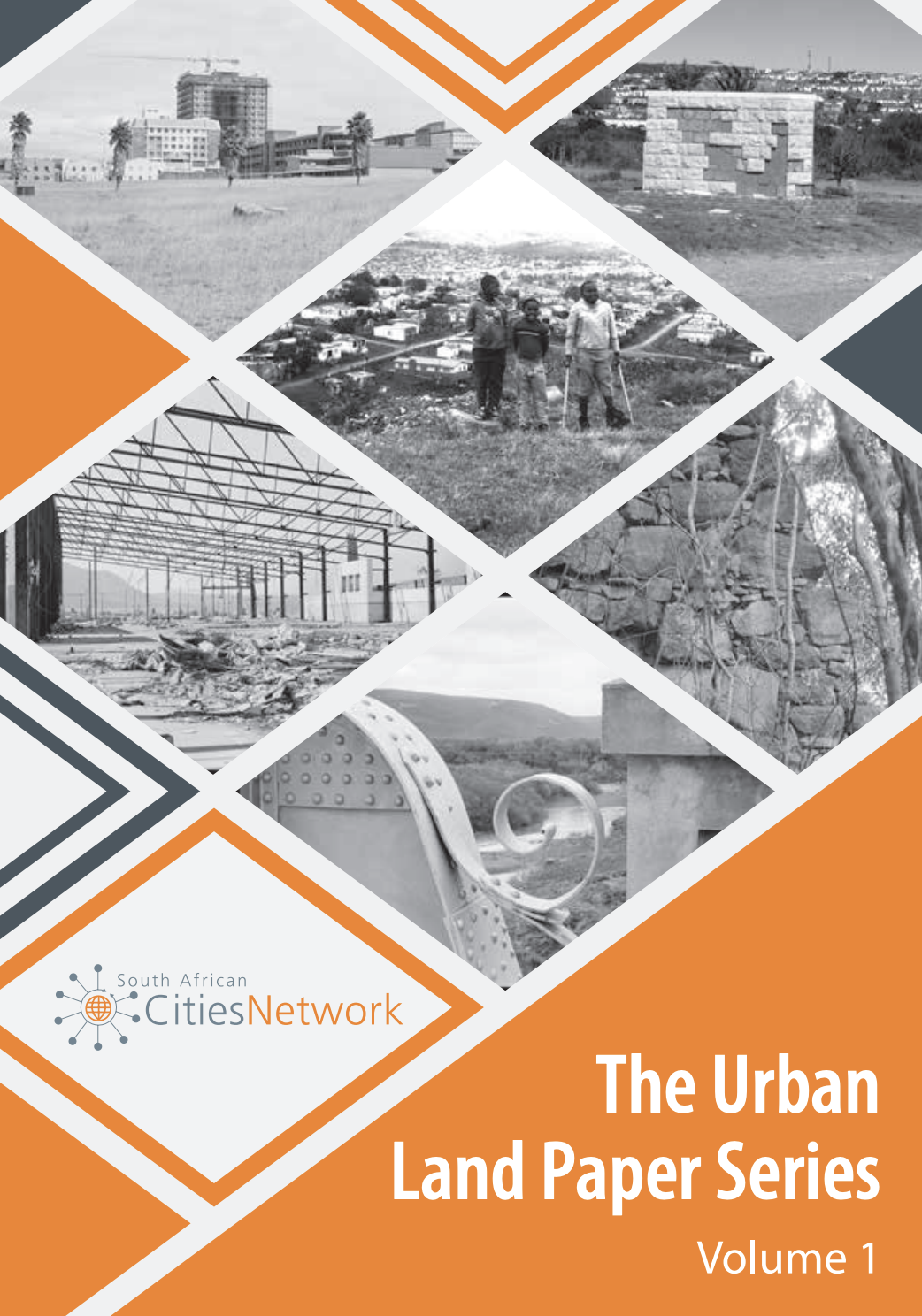The Urban Land Paper Series - Volume 1

This series of working papers on land explores the debates and processes related to land in South African cities. Ultimately it aims to provide a deeper insight for government as a whole, and local government in particular, to enable a restorative, just, equitable and sustainable developmental outcome. The series seeks to drive municipalities toward a land conversation with the aim of achieving spatial transformation within cities. Essentially it seeks to define land and outline the roles that land can play as a catalyst for spatial transformation in municipalities. Land is needed for, shelter, public transport, economic development, social and cultural activities and environmental considerations. Cities have to respond to each one of these land needs if they are to be efficient, sustainable, productive and well governed.
Many authors recognise the need for investigating how much land is owned by whom. Achmat for example argues that the property clause should not be considered an obstacle because the Constitution makes provision for expropriation where land is considered to be a social good. This suggests that government could intervene more ‘aggressively’ and decisively where land is deemed to have a broader social good. It aims to provide an overview or analysis of the land claims process or land tenure interventions (particularly housing and human settlements interventions). Significant work has been done on the issue of rural land and will not be repeated here. Instead, urban land is in the spotlight, driven by the fact that to date the focus has been on the instruments and tools to guide and plan the urban environment, without interrogating the urban land complexities and stakes. Land in our cities has a history and involves politics that cannot be ignored and must be addressed head on. For municipalities, the challenge is to balance their dual responsibility, of making land available for development that will address inequality and injustice, while recognising that the same land parcels must produce an income for service delivery (through rates and land taxes).



Comments